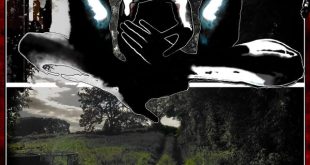When I studied poetry back in the dim dark days beyond recall, it was always made very clear that it was a mistake to equate the speaker in a poem with the poet. Even when the poem seemed very subjective and seemed to reflect actual experiences associated with the poet, it was still necessary to differentiate between the person who wrote the poem and the voice that is speaking.
Poets, even in their lyrical statements, and especially in their lyrical statements were not speaking about themselves and their own lives. They were speaking about human qualities related to all men. They spoke through voices they created: personae.
I take the same to be true of the best of the singer/songwriters. Their songs are not to be seen as personal expressions of their own emotional states. No matter how personal they seem, they are to be seen as individual instances of the general human condition. Their songs represent the universal through the particular. This is a precept listeners need to keep in mind when listening to the songs on Adam Sullivan’s newly released album, The Room Is Spinning Faster. Sullivan has created a persona that finds the world a bleak place, a place where, to quote another poet, there is “neither joy, nor love, nor light. Nor certitude, nor peace, nor hope for pain.” He is here, as on a “darkling plain.”
More often than not, he seems to be singing about loneliness and isolation and the frustrating need to find something meaningful where very little seems to have any meaning. He describes a world where there is little that can be relied on, indeed even one’s own feelings. Where some have found meaning in love, Sullivan seems to find it as unreliable as everything else in the world. His songs are dark and introspective; his vision of the world is bleak. Yet there is a beauty in melancholy. Remember Keats. Melancholy, he tells us, “dwells with beauty.” And there is no question an intense beauty is dwelling in the sadness of Sullivan’s music.
The album contains thirteen songs. And the very first track, “Nothing Like Being Alone,” with its throbbing piano, pounds out the truth that being alone shows you “just how crazy you are” because it’s you and it’s never been you. This is the human paradox: we want something, but we don’t always know what it is we want. “Please Don’t Fall In Love With Me” is a lover’s warning that he is not to be trusted, that if she closes her eyes, he’s liable to be gone. Still, he doesn’t want her to close her eyes; he wants to stay. “Something To Lose” begins with a melancholy day, where the persona laments that having nothing is the something he has to lose, and ends with a plea for a someone to be his something.
“These Are The Thoughts” begins with a mournful violin as the speaker tries to deal with sadness with random thoughts and memories, but there is the sense in the music as well as the lyrics that they may not do the job. The music throughout is the perfect counterpart to the sense. There is something dirge-like in the opening piano bars of “Rainy Morning In Amsterdam,” a song that speaks to loss and death, in this case in part, the death of a grandmother. Gradually, it rises to a richness of orchestration as it finds some consolation in the assertion that “no one dies,” before ending with the loneliness of the solo piano.
“This City” speaks to the need to break away from a place that will eat you up if you don’t eat it first. “But The Dinosaurs Were Dead” seems to contrast the need for some kind of action in the world with the impossibility of doing anything. It is, after all, too late to save the dinosaurs. It suggests that it is only the young that idealistically look to save the world. “Nothing Needs To Happen” is another song that asserts, just “leave it alone.” And even when something has to happen when love seems to be leaving and presumably must be saved, nothing does happen.
This is not a bright and cheerful album. Sullivan is not a chirpy pop singer. His voice is rich with a tinge of gravel. His vision is dark, and his voice has the darkness of his vision. It is a voice touched with experience. It is the right voice for these songs.
 Blogcritics The critical lens on today's culture & entertainment
Blogcritics The critical lens on today's culture & entertainment



